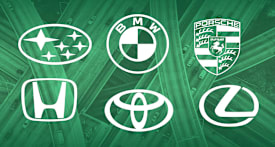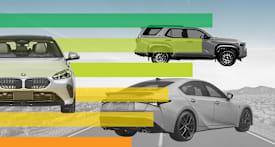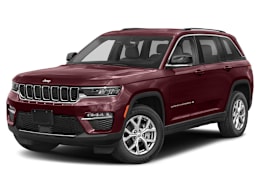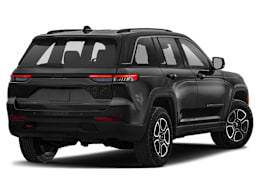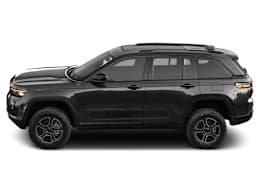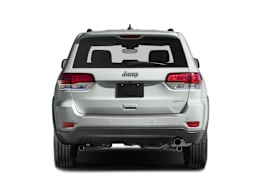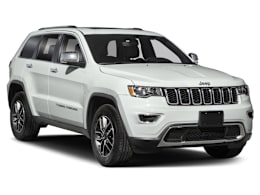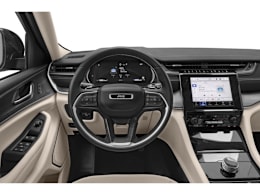The redesigned Grand Cherokee is an improvement over the previous model, with a more premium cabin, better fuel economy, and a healthy injection of refinement. Although we enjoyed driving this iconic midsized SUV, there are better options with simpler controls, shorter braking distances, and higher road-test scores. Plus, the Jeep brand’s historically below-average reliability should give shoppers pause.
The Grand Cherokee’s core powertrain remains the same as before: a 293-horsepower, 3.6-liter V6 mated to a responsive and smooth-shifting eight-speed automatic transmission. The Jeep takes off from a stop without hesitation, and the naturally-aspirated V6 delivers its power in a linear, polished fashion. Even though the Grand Cherokee is a pretty heavy vehicle, it makes quick work of two-lane passing zones thanks to the free-revving engine. Fuel economy has improved by 2 mpg over the previous V6, but at just 20 mpg overall for the four-wheel-drive model we tested (rear-wheel drive comes standard), it still lags behind many of its peers. A plug-in hybrid version—dubbed the 4xe—uses a 2.0-liter turbocharged four-cylinder coupled with electric drive to produce 375 hp, and provides an EPA-rated 26 miles of electric-only range. And, yes, a 5.7-liter V8 with 357 hp is still available.
Handling is responsive for a relatively heavy and burly vehicle, though it doesn’t possess the agility of its main rival, the Ford Explorer. Still, it proved forgiving and very secure when pushed to its limits around our track. The ride is firm, but the suspension is pretty adept at absorbing bumps—whether on paved or gravel roads. Although many Jeeps, including the Grand Cherokee, are known for their off-road prowess, most Grand Cherokees come with a single-speed four-wheel-drive system (meaning: no low-range gearing) that isn’t designed for truly-challenging off-road situations.
The quiet cabin is nicely finished with big swaths of wood trim, contrasting stitching, and a textured, jewel-like rotary gear selector. There’s tons of space for the driver, and the front seats are comfortable. The rear seat is roomy, but the cushions have precious little contouring to hold occupants in place, and taller passengers wished for more leg support.
Some of the controls are cluttered and confusing, including the row of buttons on top of the infotainment display screen, and it’s difficult to see some of the low, oddly-angled climate controls. The information within the instrument cluster changes frequently, which can be distracting, and it’s easy to get confused as to whether you’re activating regular cruise control or adaptive cruise control via the steering-wheel buttons.
Forward collision warning, automatic emergency braking with pedestrian and cyclist detection, blind spot warning, rear cross traffic warning, reverse automatic emergency braking, lane departure warning, lane keeping assistance, and adaptive cruise control all come standard.
